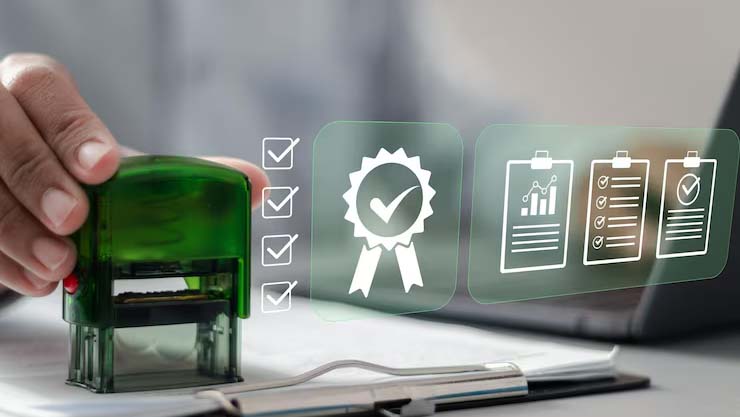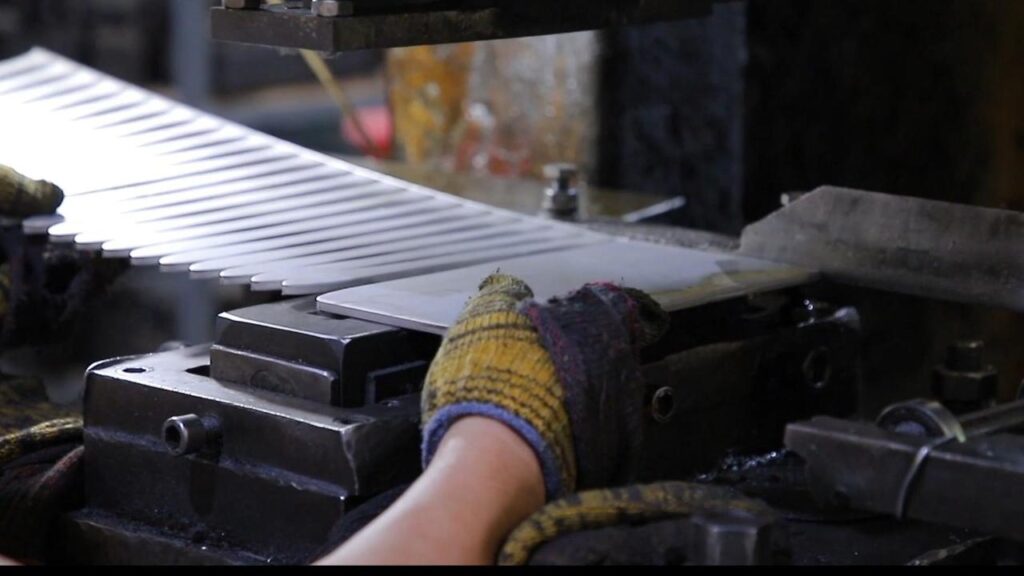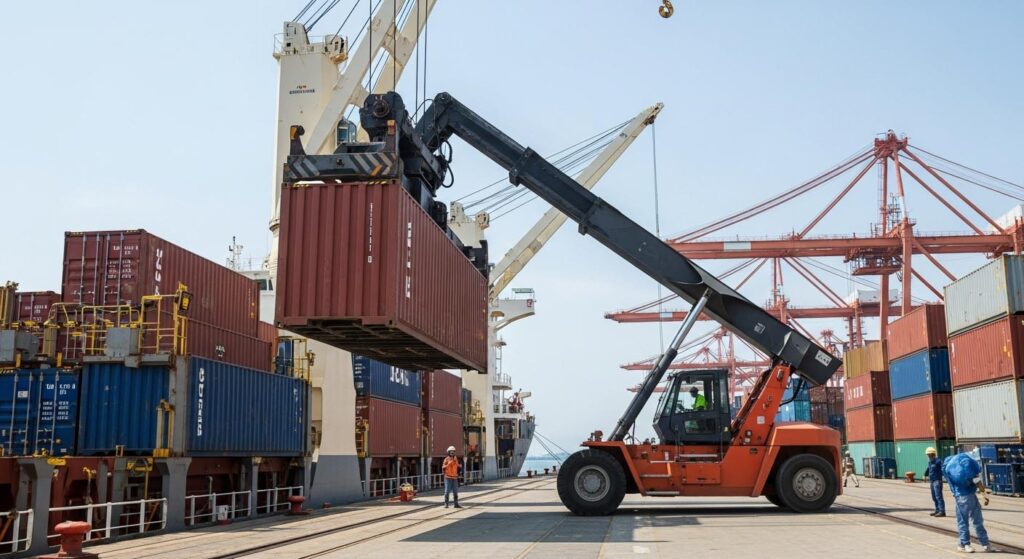How do you choose the right cross-border stainless steel cutlery supplier?
Choosing a factory overseas feels like a gamble. A low price could mean poor quality, missed deadlines, or surprise shipping problems, putting your brand's reputation and budget at risk.
To choose the right supplier, you must verify four key areas: certified quality and compliance, proven production capacity for customization, deep expertise in cross-border logistics, and clear, reliable communication. This protects your investment and ensures a smooth partnership.

I've worked with hundreds of buyers over the years, from small online retailers to huge brands managed by pros like Jacky. He once told me about a near-disaster he had with a different supplier before we started working together. The price was incredibly low, and the samples looked good. But the bulk order was a mess—the finish was inconsistent, and half the shipment got held up in customs for weeks due to incorrect paperwork. He ended up losing a major client. His story is a powerful reminder: when you're choosing a partner thousands of miles away, the price on the quote is only a tiny part of the true cost.
Is Their Quality Certified, or Just a Promise?
You receive a shipment, but the steel rusts after one wash. The supplier promised "good quality," but now you are stuck with worthless inventory and angry customers.
Don’t rely on promises. Demand proof. A quality supplier must provide international certifications like FDA or LFGB, specify the steel grade (e.g., 18/10), and offer third-party test reports for things like corrosion resistance and chemical safety.

This is the absolute foundation of a successful partnership. In my factory, we don't just say our products are safe; we prove it. The first thing you should ask about is the material. Is it food-grade stainless steel like 18/10, 18/8, or 18/0? Each has different properties. For high-end dinnerware, 18/10 is the gold standard because its 10% nickel content provides superior rust resistance and a premium shine. Next, ask for certifications. These are not just nice-to-have documents; they are non-negotiable guarantees that the products are safe for human use.
| Certification | What It Means | Why You Need It |
|---|---|---|
| FDA1 | Meets US Food and Drug Administration standards. | Essential for selling in the United States market. |
| LFGB2 | Meets German Food & Feed Act standards, known for being very strict. | The gold standard for ensuring safety in the European market. |
| ISO 90013 | Certifies the factory's quality management system. | Shows the factory has reliable processes to produce consistent quality. |
Finally, for complete peace of mind, ask for third-party test reports. A good supplier will have no problem providing reports from labs like SGS or TUV4 that verify everything from nickel release levels to dishwasher safety. This is how you move from hoping for quality to ensuring it.
Can They Actually Make What You Need, On Time?
You have a large order for a custom color that's crucial for your brand. The supplier accepts it, but then reveals they can't handle the volume, delaying your launch.
Verify their production capabilities upfront. Ask for their monthly capacity, minimum order quantity (MOQ), and if they support OEM/ODM for your specific customization needs, including PVD colors, logo engraving, and custom packaging. Confirm their lead times.

A supplier's website might show beautiful photos, but that doesn't tell you if they can handle your order. Production capacity is a real measure of their strength. You need to ask, "What is your monthly output for this type of fork?" This tells you if they can handle your order volume without it consuming their entire operation, which can lead to delays. Beyond volume, you need to confirm their customization skills. Can they do more than just put your logo on an existing product? True OEM/ODM partners can work with you to develop a unique design from scratch. For example, a client recently came to me wanting a specific shade of matte bronze PVD. We had to run several tests to perfectly match their color standard. A factory that doesn't specialize in PVD couldn't have done that. Always ask for examples of their custom work and be clear about your needs, from the type of laser engraving to the thickness of the gift box.
Do They Understand Global Logistics, or Will Your Shipment Get Stuck?
You secured a great unit price, but now you're hit with high port fees and customs charges. The supplier doesn't know how to help, and your shipment is stuck.
An experienced supplier must be fluent in international trade terms (FOB, CIF, DDP) and have a proven track record of successful exports. They should have reliable shipping partners and provide transparent pricing with no hidden fees for documents or handling.

Getting the product made is only half the battle; getting it to your warehouse is the other half. This is where an inexperienced supplier can cause huge problems. You need a partner who understands the language of global trade. They should be able to give you a clear quote based on different Incoterms and explain what each one means for your costs and responsibilities.
| Incoterm | Who Pays for Shipping | Who Handles Customs | Best For |
|---|---|---|---|
| FOB (Free On Board) | You (the buyer) | You (the buyer) | Buyers with their own shipping agent. |
| CIF (Cost, Insurance, Freight) | The supplier | You (the buyer) | Buyers who want the supplier to arrange shipping to their country's port. |
| DDP (Delivered Duty Paid) | The supplier | The supplier | Buyers who want a door-to-door service with all costs included. |
I always advise clients to ask for a DDP quote if possible, as it provides the clearest picture of the total landed cost. Also, ask about an experienced supplier’s freight forwarder. A strong logistics partner is invaluable for navigating customs smoothly and avoiding costly delays. Beware of quotes that seem too low—they may hide costs like documentation fees, port handling charges, or inland trucking. Always ask for a fully itemized cost breakdown.
Is the Supplier a Partner, or Just an Order-Taker?
You sent an urgent question, and it's been three days with no reply. When a problem arises, they disappear, leaving you to deal with the fallout alone.
A true partner communicates promptly and clearly, provides transparent quotes, and has excellent after-sales support. Their fluency in your language and positive client testimonials are strong indicators of their reliability. They solve problems with you.

In my experience, this is the most important factor for long-term success. You are not just buying a product; you are building a relationship. From your very first email, pay attention to their communication style. Do they respond within 24 hours? Is their English clear and easy to understand? Do they answer all your questions, or just the easy ones? A good salesperson will also ask you questions to better understand your needs. A transparent quote is another clear sign. It should be detailed, breaking down the cost per unit, mold fees (if any), packaging costs, and shipping terms. Vague quotes often lead to surprise charges later. Finally, ask the tough question: "What is your policy if there is a quality problem on arrival?" A reliable partner will have a clear process for handling defects, whether it's offering a credit, a replacement, or a partial refund. Their answer reveals if they will stand by their product when things go wrong.
Conclusion
Choosing a cross-border supplier goes beyond price. Focus on certified quality, stable production, reliable logistics, and clear communication to find a true partner who will help your business succeed.
-
Understanding FDA certification is crucial for compliance and market access in the US. ↩
-
Exploring this resource will provide insights into LFGB's strict standards and its importance for food safety in Europe. ↩
-
ISO 9001 certification ensures quality management, enhancing trust and reliability in manufacturing. ↩
-
Exploring SGS or TUV certification will reveal how these standards ensure product safety and quality, crucial for consumer trust. ↩
